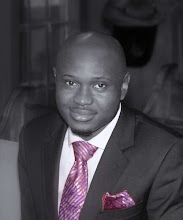Although making resolutions to improve your financial situation is a good thing to do at any time of year, many people find it easier at the beginning of a new year. Regardless of when you begin, the basics remain the same. Here are some top ten keys to getting ahead financially;
It sounds simplistic, but many people struggle with this first basic rule. Make sure you know what your job is worth in the marketplace, by conducting an evaluation of your skills, productivity, job tasks, contribution to the company, and the going rate, both inside and outside the company, for what you do. Being underpaid even a thousand dollars a year can have a significant cumulative effect over the course of your working life.
No matter how much or how little you're paid, you'll never get ahead if you spend more than you earn. Often it's easier to spend less than it is to earn more, and a little cost-cutting effort in a number of areas can result in big savings. It doesn't always have to involve making big sacrifices.
2. Stick to a Budget
One of my favorite subjects: budgeting. It's not a four-letter word. How can you know where your money is going if you don't budget? How can you set spending and saving goals if you don't know where your money is going? You need a budget whether you make thousands or hundreds of thousands of Naira a year.
3. Debit Card
Debit cards are the number one obstacle to getting ahead financially. Those little pieces of plastic are so easy to use, and it's so easy to forget that it's real money we're dealing with when we whip them out to pay for a purchase, large or small.
4. Contribute to a Retirement Plan
If your employer has a retirement plan and you don't contribute to it, you're walking away from one of the best deals out there. Ask your employer if they have a plan and sign up today. If you're already contributing, try to increase your contribution. If your employer doesn't offer a retirement plan, consider an IRA (Individual Retirement Account).
5. Have a Savings Plan
You've heard it before: Pay yourself first! If you wait until you've met all your other financial obligations before seeing what's left over for saving, chances are you'll never have a healthy savings account or investments. Resolve to set aside a minimum of 5% to 10% of your salary for savings BEFORE you start paying your bills. Better yet, have money automatically deducted(STANDING ORDER) from your salary account and deposited into a separate account.
6. Invest!
If you're contributing to a retirement plan and a savings account and you can still manage to put some money into other investments, all the better for you talk to your Broker today.
7. Maximize Your Employment Benefits
Employment benefits like a retirement plan, flexible spending accounts and medical insurance, etc., are worth big bucks. Make sure you're maximizing yours and taking advantage of the ones that can save you money by reducing taxes or out-of-pocket expenses.
8. Review Your Insurance Coverages
Too many people are talked into paying too much for life and disability insurance, whether it's by adding these coverages to car loans, buying whole-life insurance policies when term-life makes more sense, or buying life insurance when you have no dependents. On the other hand, it's important that you have enough insurance to protect your dependents and your income in the case of death or disability.
9. Update Your Will
Majority of Nigerians don't have a will. If you have dependents, no matter how little or how much you own, you need a will. Protect your loved ones. Write a will.
10. Keep Good Records
If you don't keep good records. Set up a system now and use it all year. It's much easier than scrambling to find everything , only to miss items that might have saved you money.
How are you doing on the top ten list? If you're not doing at least six of the ten, resolve to make improvements. Choose one area at a time and set a goal for incorporating all ten into your lifestyle.
"The right time to invest is always." Bruce Berkowitz
I would love to read your suggestions or feedback's on this topic. Please leave a comment thank you.





















